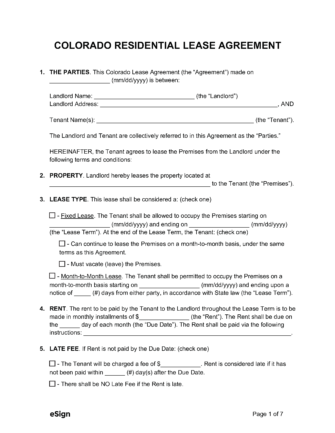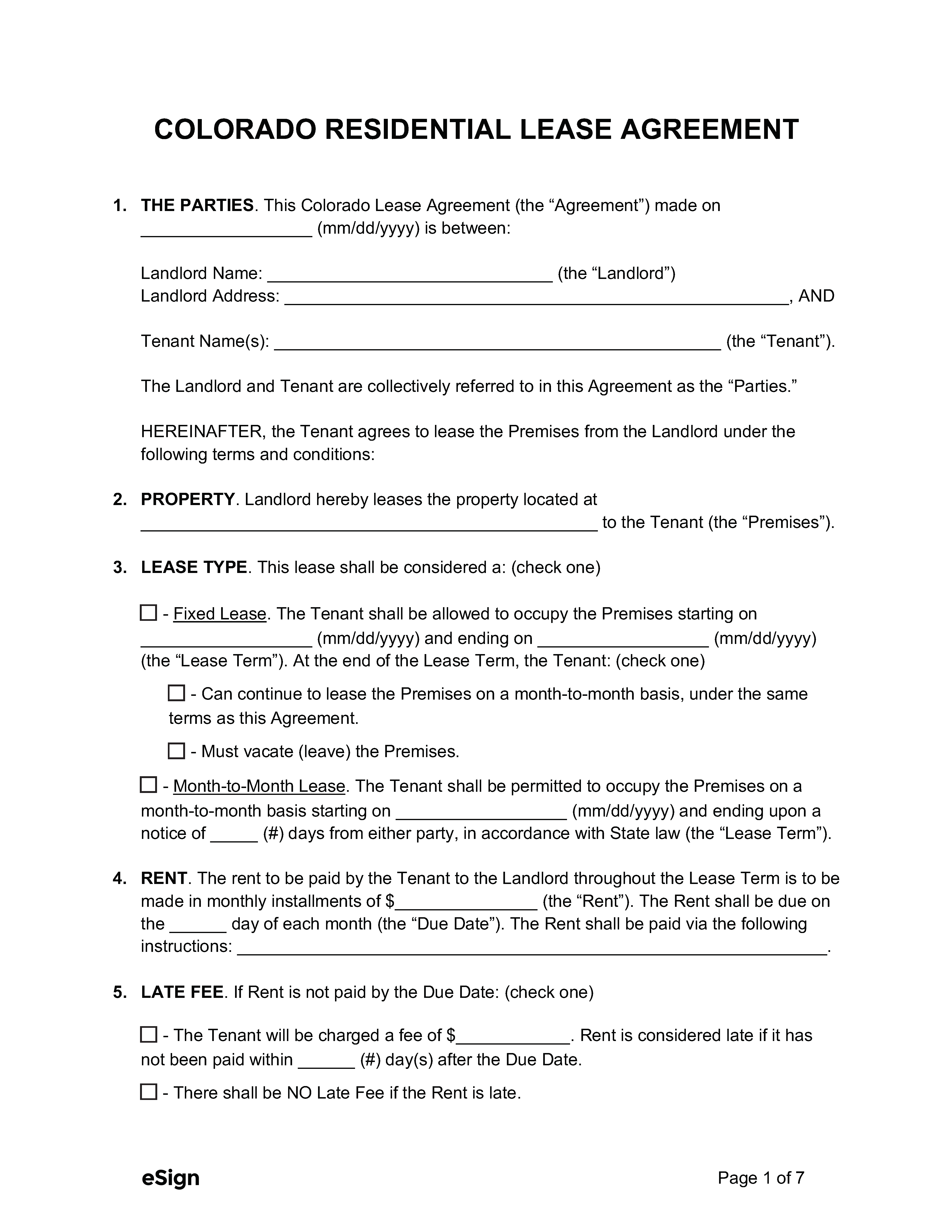Lease Agreements: By Type (6)
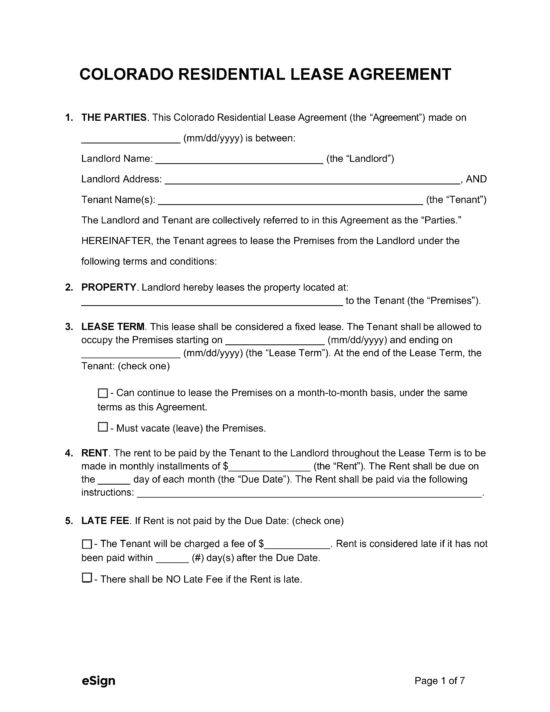 Standard (1-Year) Lease Agreement – Landlords can use this agreement to lease residential property to a tenant for one year. Standard (1-Year) Lease Agreement – Landlords can use this agreement to lease residential property to a tenant for one year.
Download: PDF, Word (.docx), OpenDocument |
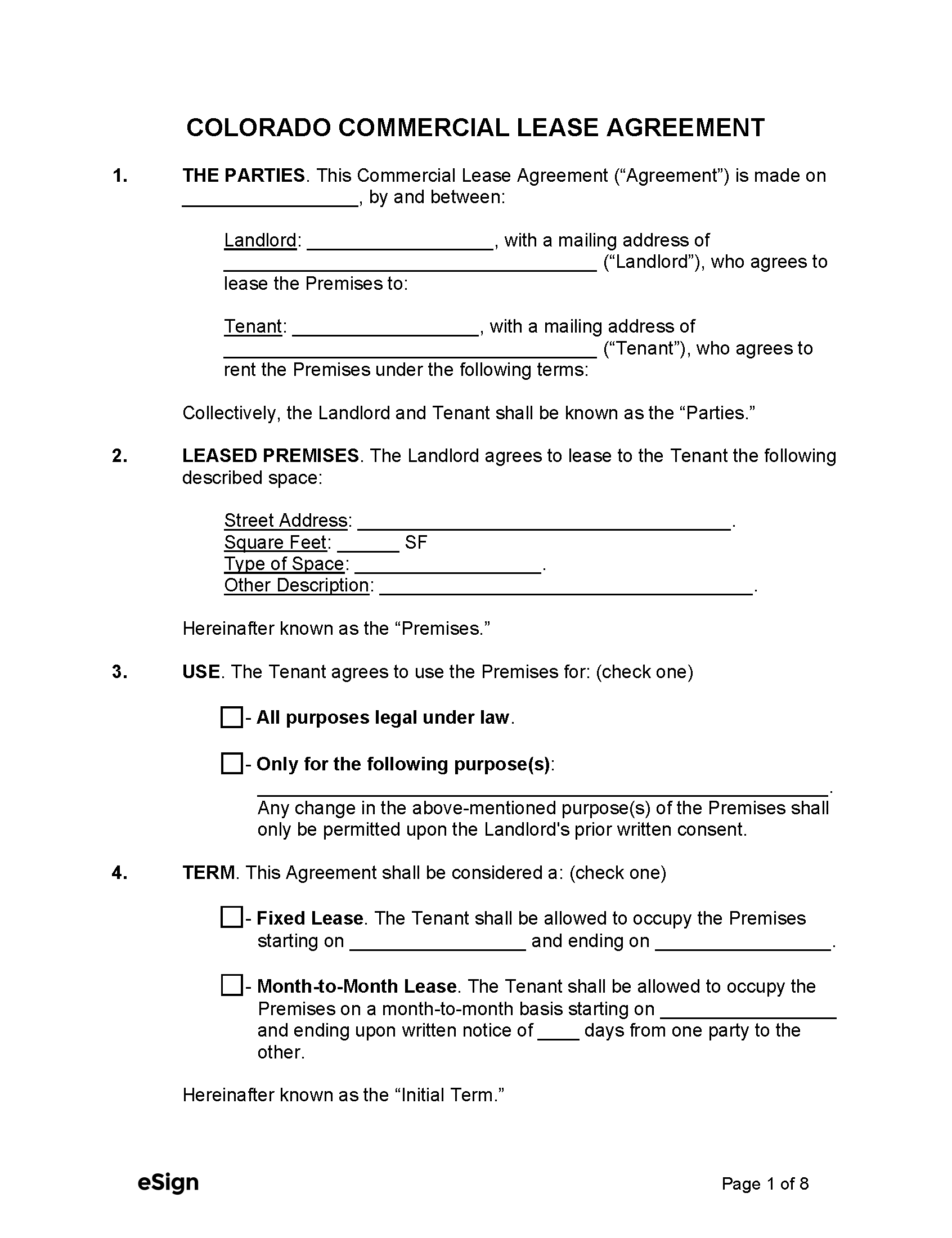 Commercial Lease Agreement – Used to establish an arrangement where the landlord rents out an office space, industrial building, retail outlet, or other commercial property. Commercial Lease Agreement – Used to establish an arrangement where the landlord rents out an office space, industrial building, retail outlet, or other commercial property.
Download: PDF, Word (.docx), OpenDocument |
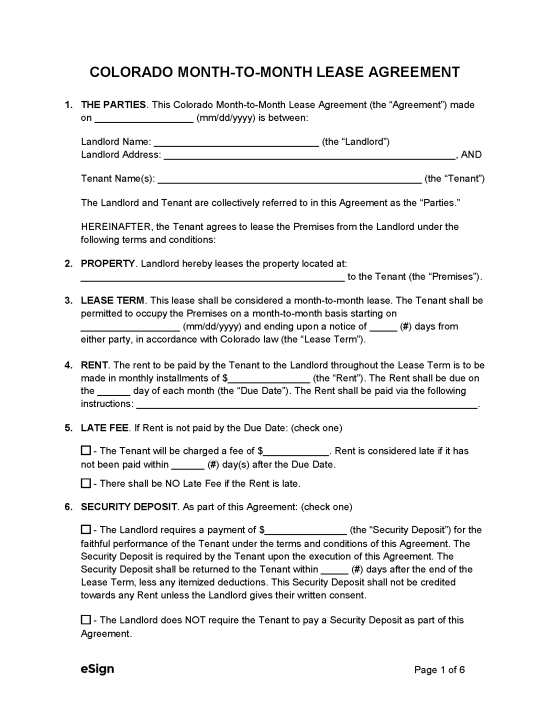 Month-to-Month Lease Agreement – This type of lease has no fixed end date and remains in effect until one of the parties terminates it by giving the required notice. Month-to-Month Lease Agreement – This type of lease has no fixed end date and remains in effect until one of the parties terminates it by giving the required notice.
Download: PDF, Word (.docx), OpenDocument |
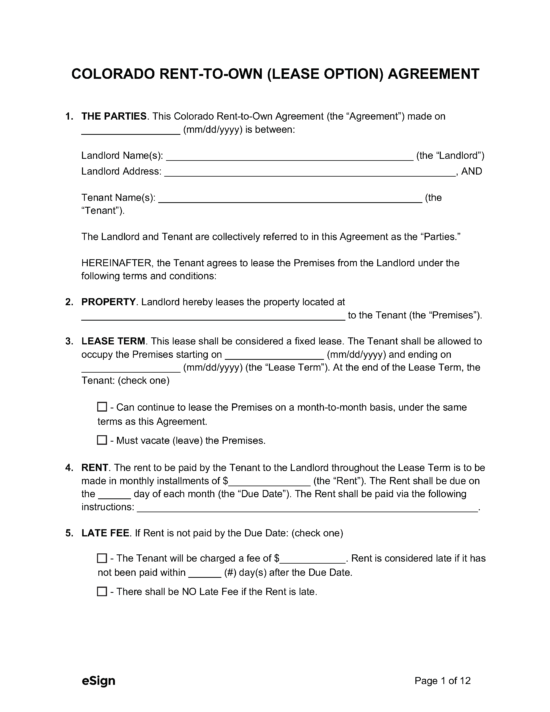 Rent-to-Own Agreement (Lease Option) – With this lease, the tenant is given the opportunity to buy the property under agreed-upon terms and conditions. Rent-to-Own Agreement (Lease Option) – With this lease, the tenant is given the opportunity to buy the property under agreed-upon terms and conditions.
Download: PDF, Word (.docx), OpenDocument |
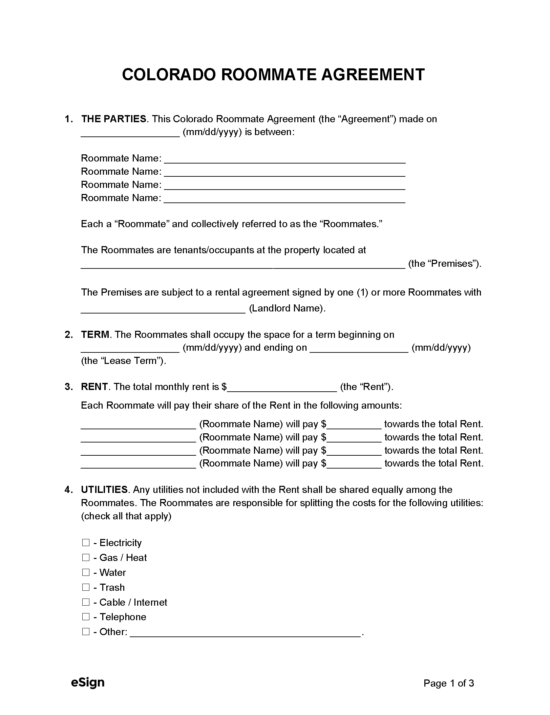 Roommate Agreement – A contract used by roommates to define the terms of a co-tenancy, such as the division of rent, cleaning duties, and overnight guests. Roommate Agreement – A contract used by roommates to define the terms of a co-tenancy, such as the division of rent, cleaning duties, and overnight guests.
Download: PDF, Word (.docx), OpenDocument |
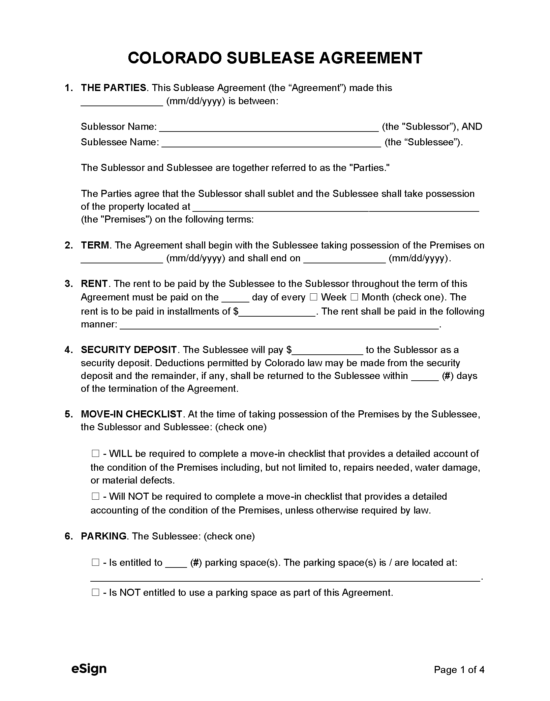 Sublease Agreement – Tenants use this form to rent out a portion or the entirety of their living space to another individual for a specific period. Sublease Agreement – Tenants use this form to rent out a portion or the entirety of their living space to another individual for a specific period.
Download: PDF, Word (.docx), OpenDocument |
Required Disclosures (2)
- Lead-Based Paint Disclosure (PDF) – If the property was built before 1978, the landlord must give this form to the tenant to disclose their knowledge of lead paint on the premises.[1]
- Radon Gas (PDF) – Residential landlords must notify potential tenants about the presence of radon on the property. They must also provide related documents (e.g., test results) and a radon and real estate brochure.[2]
Security Deposits
Maximum Amount ($) – There is no legal limit for security deposits, giving landlords the flexibility to charge any amount they choose.
- Exception – The landlord of a mobile home park cannot charge a security deposit greater than one month’s rent.[3]
Collecting Interest – State law doesn’t obligate landlords to pay interest on security deposits, but certain cities have implemented rules that require interest payments to tenants.
Returning to Tenant – Security deposits must be returned within one month after the termination of a tenancy. If specified in the lease agreement, the return period can be extended to 60 days.[4]
Itemized List Required? – Yes, when the landlord retains any portion of the security deposit, they must include an itemized list of deductions when returning the funds.[5]
Separate Bank Account? – No, Colorado’s landlord-tenant law doesn’t require landlords to keep security deposits in a separate bank account.
- Exception – Security deposits collected by the landlord of a mobile home park must be held in a separate trust account.[6]
Landlord’s Entry
General Access – Landlords are not legally required to notify tenants before entering a rental unit. However, providing a written notice at least 24 hours in advance is standard.
Immediate Access – While Colorado has no specific laws on immediate access, landlords can usually enter the property without notice if there’s an emergency.
Rent Payments
Grace Period – Tenants are given a grace period of seven days before the landlord can charge fees for late rent.[7]
Maximum Late Fee ($) – Landlords can charge up to $50 or 5% of the past due amount, whichever is greater. These fees must be disclosed in the lease agreement to be valid.[8]
Bad Check (NSF) Fee – A $20 fee can be charged to the tenant for issuing a check with insufficient funds.[9]
Withholding Rent – If there’s an issue affecting the property’s habitability that the landlord does not correct after receiving proper notice, the tenant can hire someone to conduct the repairs and deduct the costs from their rent.[10]
Breaking a Lease
Non-Payment of Rent – Residential tenants are entitled to a 10-day notice for unpaid rent, while commercial tenants only require a 3-day notice.[11]
Non-Compliance – A 10-day notice must be given to a residential tenant who commits a violation that can be remedied. For commercial tenants, a 3-day notice is required.[12]
Lockouts – Restricting access to a rental property is prohibited unless the landlord obtains a court order.[13]
Leaving Before the End Date – If a tenant leaves the property before the lease term ends, they must continue paying rent until the lease expires or the unit is re-rented. The landlord must take reasonable steps to find a new tenant while the property is vacant.[14]
Lease Termination
Month-to-Month Tenancy – The landlord or tenant can terminate a month-to-month lease by providing a 21-day notice.[15]
Unclaimed Property – Personal property left in a rental unit is considered abandoned if the tenant hasn’t contacted the landlord for 30 days and there’s no other sign that the items will be collected.[16]
Sources
- EPA/HUD Fact Sheet
- § 38-12-803
- § 38-12-207(1)
- § 38-12-103(1)
- § 38-12-103(1)
- § 38-12-207(3)
- § 38-12-105(1)(a)
- § 38-12-105(1)(b), (c)
- § 13-21-109(1)(b)(I)
- § 38-12-507(1)(e)
- § 13-40-104(1)(d)
- § 13-40-104(1)(e)
- § 38-12-510(1)
- Landlord/Tenant Handbook (p. 12)
- § 13-40-107(1)(c)
- § 38-20-116(1)
- § 38-20-116(2)
- § 38-20-116(2.5)
